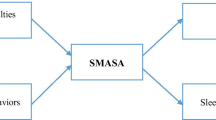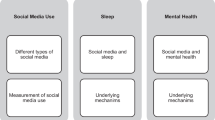Abstract
Objectives
The use of mobile applications (apps) for the practice of mindfulness is becoming more and more popular. However, little is known about the mindfulness-based apps that are available for children. The present study aimed to overcome this gap. We identified and characterized mindfulness apps for children and provided an expert-based evaluation on apps engagement, functionality, aesthetics, information, and overall quality with the Mobile App Rating Scale (MARS).
Methods
Using the search term “mindfulness,” a human and a machine rater identified all apps in the Google Play and Apple Store. Three selection criteria were applied: the apps should be in English, related to mindfulness, and suitable for children (as defined in the store’s descriptive text). An expert multidisciplinary team of six trained judges used the MARS to evaluate the selected apps, whose main features were also extracted.
Results
Among the 1933 identified apps, 57 met selection criteria. The 36 free apps achieved an average score of 3.41 (out of 5) in MARS overall quality, with Mindfulness with Petit BamBou achieving the highest score (4.33). Most apps included audio-based meditation exercises, some of them combined with videos. Exercises were typically presented as isolated practices rather embedded in sequenced programs.
Conclusions
Despite the general “acceptable” level of quality, most apps failed to achieve a score of good (≥ 4.0) in all MARS dimensions. Overall, it seems that there is room for improvement in what concerns the mindfulness-based apps freely available for children. Moreover, empirical evidence on their effectiveness is clearly warranted.
Similar content being viewed by others
References
Bakosh, L. S., Tobias Mortlock, J. M., Querstret, D., & Morison, L. (2018). Audio-guided mindfulness training in schools and its effect on academic attainment: contributing to theory and practice. Learning and Instruction, 58, 34–41. https://doi.org/10.1016/j.learninstruc.2018.04.012.
Bardus, M., van Beurden, S. B., Smith, J. R., & Abraham, C. (2016). A review and content analysis of engagement, functionality, aesthetics, information quality, and change techniques in the most popular commercial apps for weight management. International Journal of Behavioral Nutrition and Physical Activity, 13, 35. https://doi.org/10.1186/s12966-016-0359-9.
Bennike, I. H., Wieghorst, A., & Kirk, U. (2017). Online-based mindfulness training reduces behavioral markers of mind wandering. Journal of Cognitive Enhancement, 1(2), 172–181. https://doi.org/10.1007/s41465-017-0020-9.
Biegel, G. M., Brown, K. W., Shapiro, S. L., & Schubert, C. M. (2009). Mindfulness-based stress reduction for the treatment of adolescent psychiatric outpatients: a randomized clinical trial. Journal of Consulting and Clinical Psychology, 77(5), 855–866. https://doi.org/10.1037/a0016241.
BinDhim, N. F., Hawkey, A., & Trevena, L. (2015). A systematic review of quality assessment methods for smartphone health apps. Telemedicine and e-Health, 21(2), 97–104. https://doi.org/10.1089/tmj.2014.0088.
Bishop, S. R., Lau, M., Shapiro, S., Carlson, L., Anderson, N. D., Carmody, J., Segal, Z. V., Abbey, S., Speca, M., Velting, D., & Devins, G. (2004). Mindfulness: a proposed operational definition. Clinical Psychology: Science and Practice, 11(3), 230–241. https://doi.org/10.1093/clipsy.bph077.
Bootzin, R. R., & Stevens, S. J. (2005). Adolescents, substance abuse, and the treatment of insomnia and daytime sleepiness. Clinical Psychology Review, 25(5), 629–644. https://doi.org/10.1016/j.cpr.2005.04.007.
Bostock, S., Crosswell, A. D., Prather, A. A., & Steptoe, A. (2019). Mindfulness on-the-go: effects of a mindfulness meditation app on work stress and well-being. Journal of Occupational Health Psychology, 24(1), 127–138. https://doi.org/10.1037/ocp0000118.
Caballero, C., Scherer, E., West, M. R., Mrazek, M. D., Gabrieli, C. F. O., & Gabrieli, J. D. E. (2019). Greater mindfulness is associated with better academic achievement in middle school. Mind, Brain, and Education, 13(3), 157–166. https://doi.org/10.1111/mbe.12200.
Carsley, D., Khoury, B., & Heath, N. L. (2017). Effectiveness of mindfulness interventions for mental health in schools: a comprehensive meta-analysis. Mindfulness, 9(3), 693–707. https://doi.org/10.1007/s12671-017-0839-2.
Chiong, C., & Shuler, C. (2010). Learning: is there an app for that? Investigations of young children’s usage and learning with mobile devices and apps. The Joan Ganz Cooney Center at Sesame Workshop.
Creswell, J. D. (2017). Mindfulness interventions. Annual Review of Psychology, 68(1), 491–516. https://doi.org/10.1146/annurev-psych-042716-051139.
DeSteno, D., Lim, D., Duong, F., & Condon, P. (2017). Meditation inhibits aggressive responses to provocations. Mindfulness, 9(4), 1117–1122. https://doi.org/10.1007/s12671-017-0847-2.
Domnich, A., Arata, L., Amicizia, D., Signori, A., Patrick, B., Stoyanov, S., Hides, L., Gasparini, R., & Panatto, D. (2016). Development and validation of the Italian version of the mobile application rating scale and its generalisability to apps targeting primary prevention. BMC Medical Informatics and Decision Making, 16, 83. https://doi.org/10.1186/s12911-016-0323-2.
Donovan, E., Rodgers, R. F., Cousineau, T. M., McGowan, K. M., Luk, S., Yates, K., & Franko, D. L. (2016). Brief report: feasibility of a mindfulness and self-compassion based mobile intervention for adolescents. Journal of Adolescence, 53, 217–221. https://doi.org/10.1016/j.adolescence.2016.09.009.
Dunning, D. L., Griffiths, K., Kuyken, W., Crane, C., Foulkes, L., Parker, J., & Dalgleish, T. (2018). Research review: the effects of mindfulness-based interventions on cognition and mental health in children and adolescents – a meta-analysis of randomized controlled trials. Journal of Child Psychology and Psychiatry, 60(3), 244–258. https://doi.org/10.1111/jcpp.12980.
Economides, M., Martman, J., Bell, M. J., & Sanderson, B. (2018). Improvements in stress, affect, and irritability following brief use of a mindfulness-based smartphone app: a randomized controlled trial. Mindfulness, 9(5), 1584–1593. https://doi.org/10.1007/s12671-018-0905-4.
Fish, M. T., & Saul, A. D. (2019). The gamification of meditation: a randomized-controlled study of a prescribed mobile mindfulness meditation application in reducing college students’ depression. Simulation & Gaming, 50(4), 419–435. https://doi.org/10.1177/1046878119851821.
Flett, J. A. M., Hayne, H., Riordan, B. C., Thompson, L. M., & Conner, T. S. (2018). Mobile mindfulness meditation: a randomised controlled trial of the effect of two popular apps on mental health. Mindfulness, 10(5), 863–876. https://doi.org/10.1007/s12671-018-1050-9.
Flett, J. A. M., Conner, T. S., Riordan, B. C., Patterson, T., & Hayne, H. (2020). App-based mindfulness meditation for psychological distress and adjustment to college in incoming university students: a pragmatic, randomised, waitlist-controlled trial. Psychology & Health, 1-26. https://doi.org/10.1080/08870446.2019.1711089
Greenberg, M. T., & Harris, A. R. (2012). Nurturing mindfulness in children and youth: current state of research. Child Development Perspectives, 6(2), 161–166. https://doi.org/10.1111/j.1750-8606.2011.00215.x.
Grist, R., Porter, J., & Stallard, P. (2017). Mental health mobile apps for preadolescents and adolescents: a systematic review. Jornal of Medical Internet Research, 19(5), e176. https://doi.org/10.2196/jmir.7332.
Grossman, P., Niemann, L., Schmidt, S., & Walach, H. (2004). Mindfulness-based stress reduction and health benefits. Journal of Psychosomatic Research, 57(1), 35–43. https://doi.org/10.1016/s0022-3999(03)00573-7.
Harbach, M., Hettig, M., Weber, S., & Smith, M. (2014). Using personal examples to improve risk communication for security & privacy decisions. Proceedings of the SIGCHI Conference on Human Factors in Computing Systems (CHI ’14), Canada, 2647–2656. https://doi.org/10.1145/2556288.2556978
Hill, C. L. M., & Updegraff, J. A. (2012). Mindfulness and its relationship to emotional regulation. Emotion, 12(1), 81–90. https://doi.org/10.1037/a0026355.
Huang, C., & Kao, Y. (2015). UTAUT2 based predictions of factors influencing the technology acceptance of phablets by DNP. Mathematical Problems in Engineering, 2015, 1–23. https://doi.org/10.1155/2015/603747.
Kabat-Zinn, J. (1982). An outpatient program in behavioral medicine for chronic pain patients based on the practice of mindfulness meditation. General Hospital Psychiatry, 4(1), 33–47. https://doi.org/10.1016/0163-8343(82)90026-3.
Kabat-Zinn, J. (2003). Mindfulness-based interventions in context: past, present, and future. Clinical Psychology: Science and Practice, 10(2), 144–156. https://doi.org/10.1093/clipsy.bpg016.
Keng, S.-L., Smoski, M. J., & Robins, C. J. (2011). Effects of mindfulness on psychological health: a review of empirical studies. Clinical Psychology Review, 31(6), 1041–1056. https://doi.org/10.1016/j.cpr.2011.04.006.
Klingbeil, D. A., Renshaw, T. L., Willenbrink, J. B., Copek, R. A., Chan, K. T., Haddock, A., Yassine, J., & Clifton, J. (2017). Mindfulness-based interventions with youth: a comprehensive meta-analysis of group-design studies. Journal of School Psychology, 63, 77–103. https://doi.org/10.1016/j.jsp.2017.03.006.
Kubo, A., Altschuler, A., Kurtovich, E., Hendlish, S., Laurent, C. A., Kolevska, T., Li, Y., & Avins, A. (2018). A pilot mobile-based mindfulness intervention for cancer patients and their informal caregivers. Mindfulness, 9(6), 1885–1894. https://doi.org/10.1007/s12671-018-0931-2.
Kucirkova, N. (2018). Personalised learning with digital technologies at home and school: where is children’s agency? In G. Oakley (Ed.), Mobile technologies in children’s language and literacy (pp. 133-153). Emerald Publishing. https://doi.org/10.1108/978-1-78714-879-620181009.
Lindsay, E. K., Young, S., Smyth, J. M., Brown, K. W., & Creswell, J. D. (2018). Acceptance lowers stress reactivity: dismantling mindfulness training in a randomized controlled trial. Psychoneuroendocrinology, 87, 63–73. https://doi.org/10.1016/j.psyneuen.2017.09.015.
Linehan, M. (1993). Skills training manual for treating borderline personality disorder. Guilford Press.
Lunsky, Y., Fung, K., Lake, J., Steel, L., & Bryce, K. (2017). Evaluation of acceptance and commitment therapy (ACT) for mothers of children and youth with autism spectrum disorder. Mindfulness, 9(4), 1110–1116. https://doi.org/10.1007/s12671-017-0846-3.
Mani, M., Kavanagh, D. J., Hides, L., & Stoyanov, S. R. (2015). Review and evaluation of mindfulness-based iPhone apps. JMIR mHealth and uHealth, 3(3), e82. https://doi.org/10.2196/mhealth.4328.
Martin Payo, R., Fernandez Álvarez, M. M., Blanco Díaz, M., Cuesta Izquierdo, M., Stoyanov, S. R., & Llaneza Suárez, E. (2019). Spanish adaptation and validation of the mobile application rating scale questionnaire. International Journal of Medical Informatics, 129, 95–99. https://doi.org/10.1016/j.ijmedinf.2019.06.005.
Meiklejohn, J., Phillips, C., Freedman, M. L., Griffin, M. L., Biegel, G., Roach, A., Frank, J., Burke, C., Pinger, L., Soloway, G., Isberg, R., Sibinga, E., Grossman, L., & Saltzman, A. (2012). Integrating mindfulness training into K-12 education: fostering the resilience of teachers and students. Mindfulness, 3(4), 291–307. https://doi.org/10.1007/s12671-012-0094-5.
Mendelson, T., Greenberg, M. T., Dariotis, J. K., Gould, L. F., Rhoades, B. L., & Leaf, P. J. (2010). Feasibility and preliminary outcomes of a school-based mindfulness intervention for urban youth. Journal of Abnormal Child Psychology, 38(7), 985–994. https://doi.org/10.1007/s10802-010-9418-x.
Mendelson, T., Dariotis, J. K., Gould, L. F., Smith, A. S. R., Smith, A. A., Gonzalez, A. A., & Greenberg, M. T. (2013). Implementing mindfulness and yoga in urban schools: a community-academic partnership. Journal of Children’s Services, 8(4), 276–291. https://doi.org/10.1108/jcs-07-2013-0024.
Messner, E. M., Terhorst, Y., Barke, A., Baumeister, H., Stoyanov, S., Hides, L., Kavanagh, D., Pryss, R., Sander, L., & Probst, T. (2020). The German version of the Mobile App Rating Scale (MARS-G): development and validation study. JMIR mHealth and uHealth, 8(3), e14479. https://doi.org/10.2196/14479.
Mkpojiogu, E. O. C., Hussain, A., & Hassan, F. A. (2018). A systematic review of usability quality attributes for the evaluation of mobile learning applications for children. AIP Conference Proceedings, 2016(1), 1–8. https://doi.org/10.1063/1.5055494.
Napoli, M., Krech, P. R., & Holley, L. C. (2005). Mindfulness training for elementary school students. Journal of Applied School Psychology, 21(1), 99–125. https://doi.org/10.1300/J370v21n01_05.
Neece, C. L., Chan, N., Klein, K., Roberts, L., & Fenning, R. M. (2018). Mindfulness-based stress reduction for parents of children with developmental delays: understanding the experiences of Latino families. Mindfulness, 10(6), 1017–1030. https://doi.org/10.1007/s12671-018-1011-3.
Nikken, P., & Schols, M. (2015). How and why parents guide the media use of young children. Journal of Child and Family Studies, 24(11), 3423–3435. https://doi.org/10.1007/s10826-015-0144-4.
O’ Reilly, G., Coyle, D., & Tunney, C. (2016). Even buddhist monks use a gong. International Journal of Game-Based Learning, 6(4), 39–51. https://doi.org/10.4018/ijgbl.2016100103.
Ridderinkhof, A., de Bruin, E. I., Blom, R., & Bogels, S. M. (2018). Mindfulness-based program for children with autism spectrum disorder and their parents: direct and long-term improvements. Mindfulness, 9(3), 773–791. https://doi.org/10.1007/s12671-017-0815-x.
Rupprecht, S., Koole, W., Chaskalson, M., Tamdjidi, C., & West, M. (2019). Running too far ahead? Towards a broader understanding of mindfulness in organisations. Current Opinion in Psychology, 28, 32–36. https://doi.org/10.1016/j.copsyc.2018.10.007.
Salazar, A., de Sola, H., Failde, I., & Moral-Munoz, J. A. (2018). Measuring the quality of mobile apps for the management of pain: systematic search and evaluation using the mobile app rating scale. JMIR mHealth and uHealth, 6(10), e10718. https://doi.org/10.2196/10718.
Schoeppe, S., Alley, S., Rebar, A. L., Hayman, M., Bray, N. A., Van Lippevelde, W., Gnam, J. P., Bachert, P., Direito, A., & Vandelanotte, C. (2017). Apps to improve diet, physical activity and sedentary behaviour in children and adolescents: a review of quality, features and behaviour change techniques. International Journal of Behavioral Nutrition and Physical Activity, 14(1), 83. https://doi.org/10.1186/s12966-017-0538-3.
Segal, Z. V., Williams, J. M. G., & Teasdale, J. D. (2002). Mindfulness-based cognitive therapy for depression. a new approach to preventing relapse. The Guilford Press.
Sherwin, K., & Nielsen, J. (2019). Children’s UX: usability issues in designing for young people. Nielsen Norman Group. https://www.nngroup.com/articles/childrens-websites-usability-issues/
Stoyanov, S. R., Hides, L., Kavanagh, D. J., Zelenko, O., Tjondronegoro, D., & Mani, M. (2015). Mobile app rating scale: a new tool for assessing the quality of health mobile apps. JMIR mHealth and uHealth, 3(1), e27. https://doi.org/10.2196/mhealth.3422.
Stoyanov, S. R., Hides, L., Kavanagh, D. J., & Wilson, H. (2016). Development and validation of the user version of the mobile application rating scale (uMARS). JMIR mHealth and uHealth, 4(2), e72. https://doi.org/10.2196/mhealth.5849.
Tao, D., Shao, F., Wang, X., Yan, M., & Qu, X. (2019). Integrating usability and social cognitive theories with the technology acceptance model to understand young users’ acceptance of a health information portal. Health Informatics Journal. https://doi.org/10.1177/1460458219879337.
Thompson, M., & Gauntlett-Gilbert, J. (2008). Mindfulness with children and adolescents: effective clinical application. Clinical Child Psychology and Psychiatry, 13(3), 395–407. https://doi.org/10.1177/1359104508090603.
Tunney, C., Cooney, P., Coyle, D., & O’Reilly, G. (2017). Comparing young people’s experience of technology-delivered v. face-to-face mindfulness and relaxation: two-armed qualitative focus group study. The British Journal of Psychiatry, 210(4), 284–289. https://doi.org/10.1192/bjp.bp.115.172783.
Wall, R. B. (2005). Tai Chi and mindfulness-based stress reduction in a Boston public middle school. Journal of Pediatric Health Care, 19(4), 230–237. https://doi.org/10.1016/j.pedhc.2005.02.006.
Yang, E., Schamber, E., Meyer, R. M. L., & Gold, J. I. (2018). Happier healers: randomized controlled trial of mobile mindfulness for stress management. The Journal of Alternative and Complementary Medicine, 24(5), 505–513. https://doi.org/10.1089/acm.2015.0301.
Yarosh, S., & Schueller, S. M. (2017). “Happiness inventors”: informing positive computing technologies through participatory design with children. Journal of Medical Internet Research, 19(1). https://doi.org/10.2196/jmir.6822.
Zelazo, P. D., & Lyons, K. E. (2012). The potential benefits of mindfulness training in early childhood: a developmental social cognitive neuroscience perspective. Child Development Perspectives, 6(2), 154–160. https://doi.org/10.1111/j.1750-8606.2012.00241.x.
Zoogman, S., Goldberg, S. B., Hoyt, W. T., & Miller, L. (2014). Mindfulness interventions with youth: a meta-analysis. Mindfulness, 6(2), 290–302. https://doi.org/10.1007/s12671-013-0260-4.
Acknowledgments
We are thankful to the team members and collaborators of the M2S Project, who contributed to this study.
Funding
This work was supported by the M2S Project funded through the Operational Programme for Competitiveness and Internationalization, supported by FEDER and national funds allocated to the Portuguese Foundation for Science and Technology (FCT; NORTE-01-0145-FEDER-028404). During the study, the first author was supported by an FCT Grant (SFRH/BD/139195/2018).
Author information
Authors and Affiliations
Contributions
AN and TL designed and executed the study, analyzed the data, and wrote the manuscript. SLC collaborated with the design of the study and assisted with writing and editing of the final manuscript. All authors approved the final version of the manuscript for submission.
Corresponding author
Ethics declarations
Conflict of Interest
The authors declare that they have no conflict of interest.
Ethical Approval
This article does not involve human participants.
Additional information
Publisher’s Note
Springer Nature remains neutral with regard to jurisdictional claims in published maps and institutional affiliations.
Electronic supplementary material
ESM 1
(DOCX 33 kb)
Rights and permissions
About this article
Cite this article
Nunes, A., Castro, S.L. & Limpo, T. A Review of Mindfulness-Based Apps for Children. Mindfulness 11, 2089–2101 (2020). https://doi.org/10.1007/s12671-020-01410-w
Published:
Issue Date:
DOI: https://doi.org/10.1007/s12671-020-01410-w




